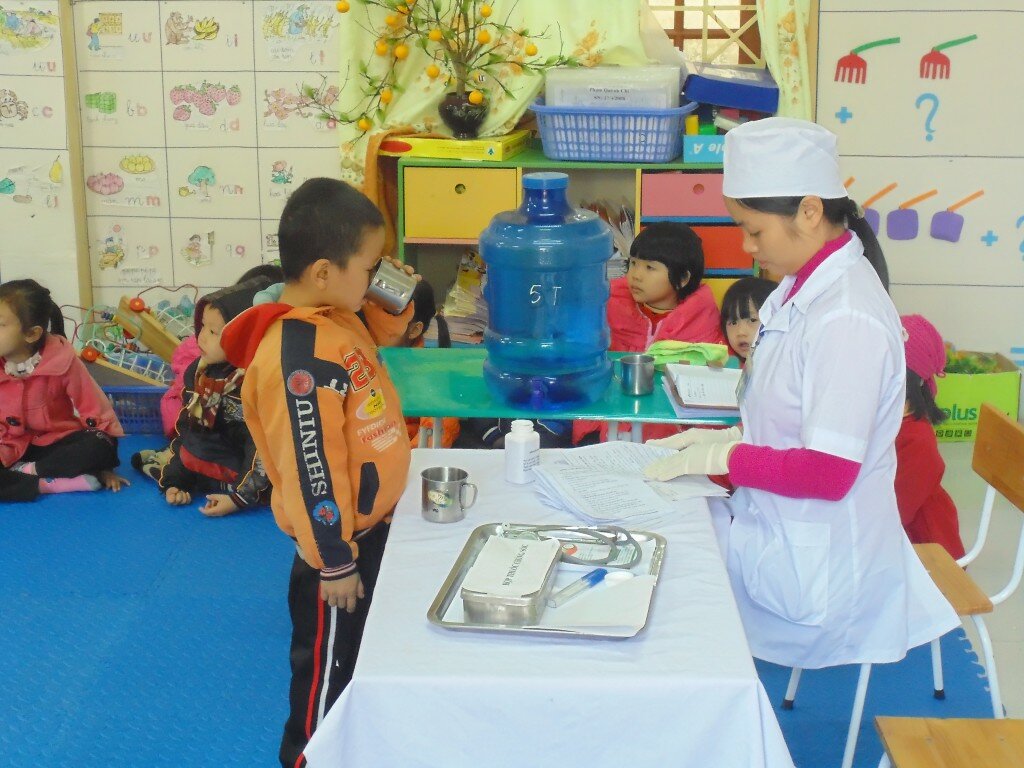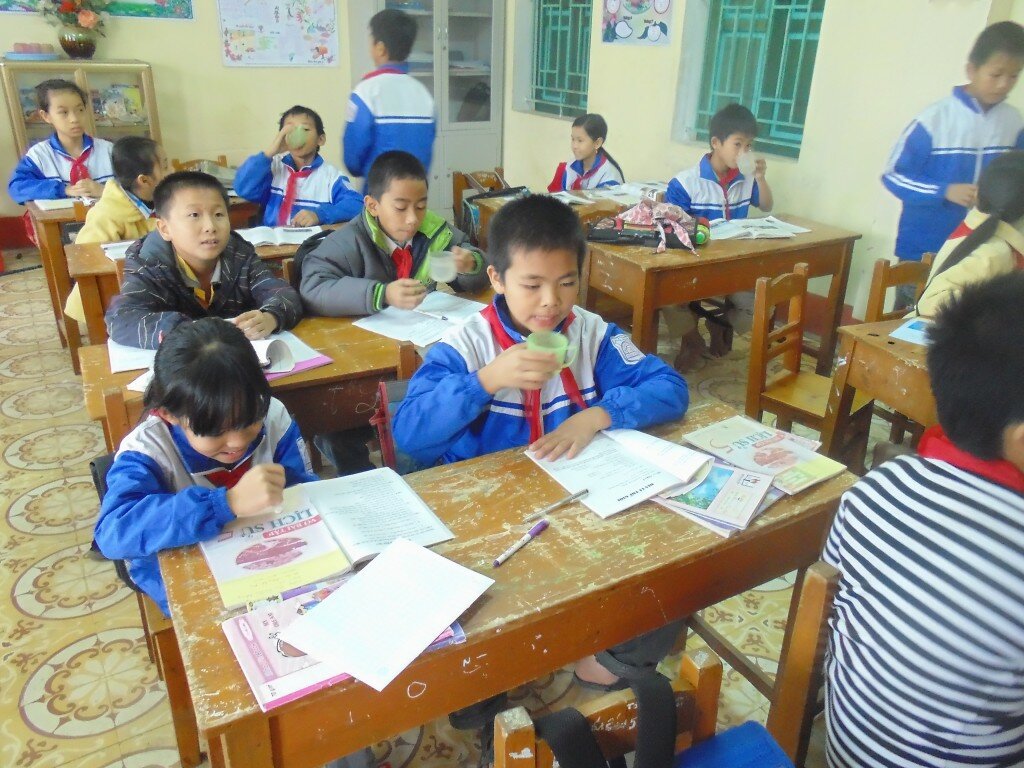
Claribel and two of her children. Dominican Republic. Source: Vitamin Angels
By Clayton Ajello, Vitamin Angels; David Addiss, Children Without Worms; and Neeraj Mistry, Global Network for Neglected Tropical Diseases.
This blog was originally posted on Impatient Optimists.
For 22-year-old Claribel, making ends meet is a challenge. She and her family live in a remote, marginalized community in the Dominican Republic with little access to health services and clean water – conditions which place Claribel’s family at risk for contracting neglected tropical diseases (NTDs) such as intestinal worms. Claribel’s three children, Altagracia (6), Wardin (3) and Nismael (2), eat arroz con habichuelas (rice and beans) for nearly every meal, and they rarely have access to essential protein and vegetables.
While Claribel’s children are eating enough calories, they still suffer from undernutrition because their diets are deficient in the essential vitamins and minerals necessary for proper physical and mental development. At the same time, they are also suffering from intestinal worms – also referred to as soil transmitted helminths (STH) – which cause, aggravate and intensify the loss of nutrients, especially vitamin A and iron.
Plagued by both undernutrition and NTDs, the children have low energy and sometimes cry for no apparent reason. Intestinal worm infections place these children at greater risk for vitamin A deficiency (VAD) because the worms prevent their bodies from absorbing what little vitamin A they have in their diets.
Unfortunately, Claribel’s story reflects a global problem. Millions of children across Latin America and the Caribbean, Asia and Africa suffer from deficiencies in Vitamin A, iron and other critical nutrients that their bodies need to grow and fight illness — in addition to NTD infections. The combined effects are devastating, resulting in impaired growth, decreased cognitive function, anemia and even death.
This is why organizations like Children Without Worms, Vitamin Angels and the Global Network for Neglected Tropical Diseases, pharmaceutical companies and many other global partners are working together to address intestinal worms and undernutrition. This partnership, called the STH Coalition, is helping children across the world reach their full potential through a multi-sectoral approach, leveraging delivery platforms and expertise from the health, education, nutrition and water and sanitation community.
Delivering deworming treatments with Vitamin A supplements and other nutrition interventions has shown promising health outcomes, including reduced anemia, lower child mortality, improved child growth and development and overall improved nutrition. In the long-term, this integrated approach can reduce school absenteeism and improve worker productivity.
Just one dose of vitamin A, twice a year, can reduce mortality rates by up to 24 percent.
For at-risk children from six months to five-years-old, just one dose of vitamin A, twice a year, can reduce mortality rates by up to 24 percent. Moreover, for children 12 months of age or older, simultaneous administration of a single dose of a deworming treatment, like albendazole, kills worms living in a child’s system.
For Claribel’s children, Altagracia, Wardin and Nismael, the benefits of this integrated approach are clear. Thanks to the support of Vitamin Angels and global partners, the children received both vitamin A and albendazole. Lately, they have been more energetic and Claribel is grateful for the change she is seeing in her children. Inspired by her desire to see her children succeed, Claribel is now taking classes to receive her high school diploma and dreams that her children will one day find a good job doing something that makes them happy.
Claribel is now taking classes to receive her high school diploma and dreams that her children will one day find a good job doing something that makes them happy.
The international development community has the opportunity to act now in order to foster future success stories. By focusing new energy toward eliminating the policy, program and resource gaps that hinder existing efforts to end both intestinal worms and undernutrition, global partners can accelerate impact. Simply put, the development community should embrace a coordinated, integrated response to address both problems. Given the strong momentum behind the fight to end NTDs and the growing unified movement to end undernutrition, now is a propitious time to identify synergies in policies, leverage delivery platforms and foster greater collaboration across sectors to deliver high-impact health and nutrition solutions to families like Claribel’s.





